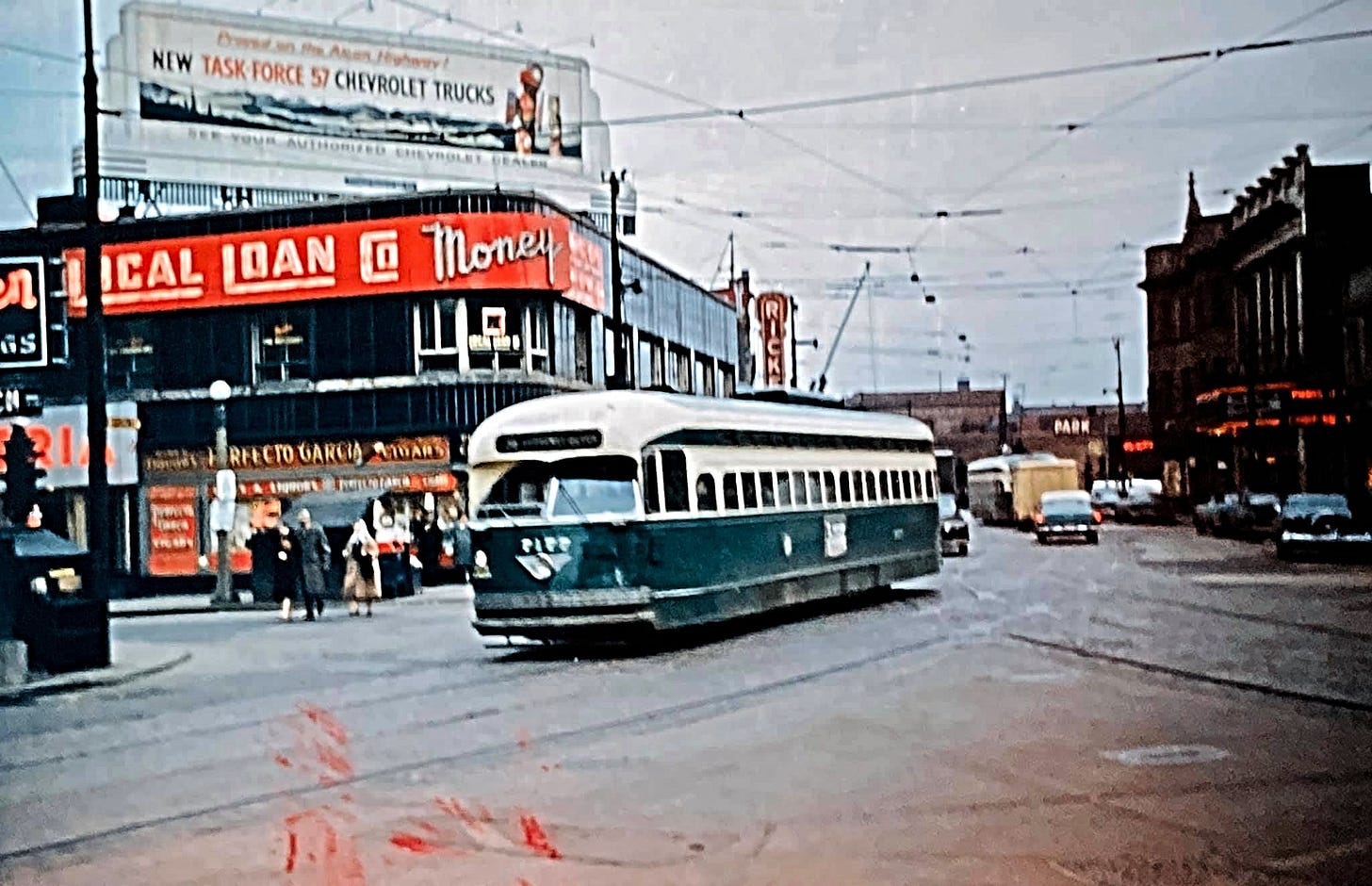Diary: (2) Donna Seaman, “River of Books”
My parents, Bronx high-school sweethearts, were ardent readers. My father, who dropped out at age fifteen to work, schooled himself in libraries and on the job …
Intersection of Clark, Diversey, and Broadway in Chicago, undated photograph
Read Part One of this post here!
As I filled my mind with the ancients by night, by day at the Newberry I was part of a methodically organized and tightly run operation in a large corner room with many windows and half-a-dozen workstations. In the bindery, skilled technicians took apart and stitched back together old books made of vellum and parchment. Books printed on acidic paper were dismantled, washed, and reassembled. My job was to stamp, with gold or silver foil, the book’s title, author, and call number on newly constructed book covers and spines. I worked with cloth-covered boards, setting the type by hand. My station held a set of old wooden type cases with little rectangular cubbies for each tiny metal letter. I was spun back in time, minding my ps and qs, reading type backwards and upside-down. I set each letter in the composing stick, with the necessary spacing material, and loaded the form into an old table-top hand press. I placed each cover carefully on the bed, and then set the thin, delicate foil—so easy to crimp or tear—gently on the cloth. It took all my strength and body weight to pull down the lever and stamp the foil into the cloth, to embed the gold and the silver into the embossed shapes the letters created as they bit into the threads. Over and over again I figured out how to best compose the text, over and over I plucked out the metal letters, the slugs. Again and again, I set the form, loaded it into the press, splayed the cardboard cover wrapped in durable plain cloth of blue, gray, green, red, brown, or black. Gently, gently I lifted the foil, every slight movement a gust of wind.
I had to exert pressure but carefully so as not to shift anything. I needed a clean, crisp impression. I would remove the cover, carefully brush off the loose foil, inspect the embossed letters and numbers, set the cover down at the “finished” end of my worktable and take up the next order. I wore a white lab coat with my name embroidered in blue cursive about the chest pocket.
Keep reading with a 7-day free trial
Subscribe to Book Post to keep reading this post and get 7 days of free access to the full post archives.




